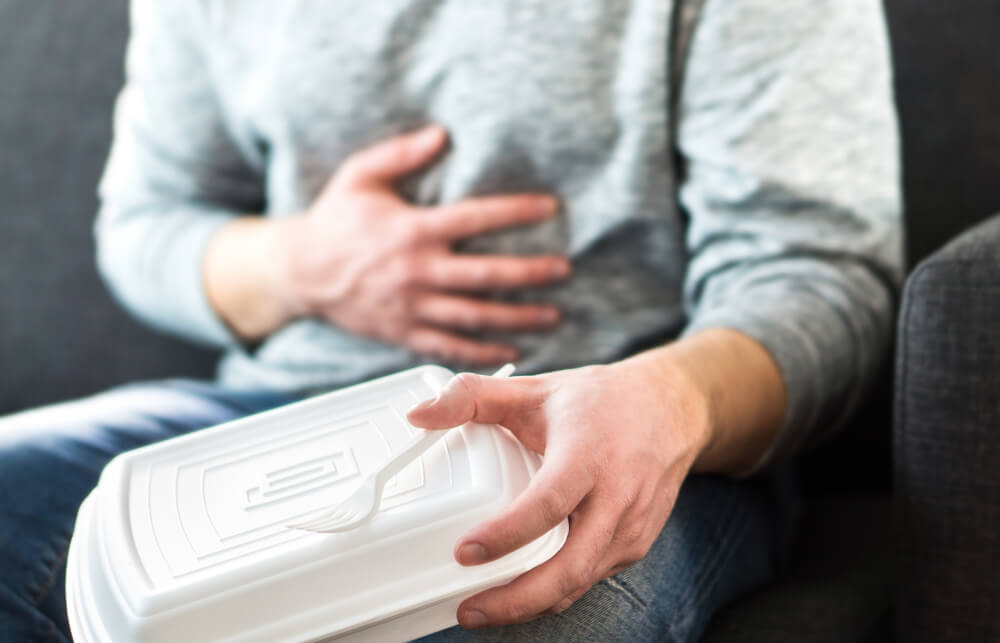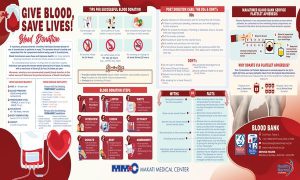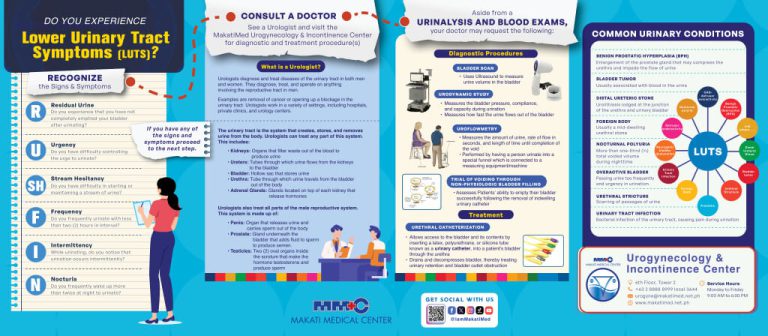Everyone likes a good celebration. For Filipinos, there is no better way to get together with friends and family than with a feast of sumptuous and delectable dishes.
While it is tempting to put one’s diet in the backseat, it is also easy to overdo with indulgence and lose control at the dining table by eating too fast or too much, leading to an upset stomach. But is this true?
Read on to learn more about food indigestion—its causes, symptoms, and treatments.
What is Food Indigestion?
Also known as dyspepsia, indigestion is the persistent or recurring pain or discomfort in the upper abdomen. Often, it is a symptom of a larger digestive problem, such as Gastroesophageal Reflux Disease (GERD), ulcer, or gallbladder disease.
While its severity varies on a case-by-case basis, below are some of the most common symptoms of indigestion to watch out for:
- Feeling full sooner than normal: Despite not eating too much, those suffering from indigestion might experience early fullness and not finish meals.
- Getting uncomfortable and bloated after a meal: With food indigestion, the feeling of fullness lasts longer than usual and comes with an unpleasant sensation.
- Burning and pain in the upper abdomen: Mild to severe tightness or heat may be felt, particularly between the bottom of the breastbone and belly button.
- Excessive belching or flatulence: Too much farting is another sign of indigestion. It is the body’s way of releasing as much air out to reduce the distention or swelling of the digestive tract.
- Feeling nauseous: Often, those who suffer from indigestion feel sick and want to vomit.
- Acidic flavor in the mouth: Dyspepsia is one of the most common symptoms of acid reflux. It can cause a sour or bitter taste in the mouth as the acid rises to the back of the throat.
- Rumbling stomach: While generally not a cause of concern, indigestion may also result in loud stomach gurgling.
Causes of Indigestion
Why does this rather uncomfortable feeling happen to the body? To better understand, here are some of the indigestion triggers:
- Eating: Consuming food too much or too fast can lead to indigestion. Unhealthy amounts of acidic, fatty, greasy, or spicy food also contribute to this uneasy sensation.
- Drinking: Too many alcoholic, caffeinated, and carbonated drinks could lead to indigestion.
- Feeling stressed: When stressed, one may either eat too much or nothing at all. Either way, this can result in dyspepsia if the digestive tract suddenly has too much to process or acid builds up.
- Smoking: Compared to those who are not, smokers are more prone to heartburn, GERD, and peptic ulcers, among other health disorders.
- Certain medications: Drugs like antibiotics, pain relievers, and iron supplements are among the leading triggers of indigestion.
- Medical conditions: Existing digestive tract diseases and other health problems can cause indigestion, such as gastritis, irritable bowel syndrome, and lactose intolerance.
How to Avoid Indigestion
Like all things, prevention is the better way than cure to go about food indigestion. Here are a few things to keep in check:
- Eat smaller meals: Consuming several small and low-fat meals instead of three (3) generous portions a day is key to maintaining a calmer stomach.
- Take the time to finish a meal: Eating slowly allows the digestive tract to function as it should. Doing so prevents the stomach from working too intensely, which is one of the leading causes of indigestion.
- Cut back on acidic and spicy food: Although a wide selection of meals is a must for a feast, be wary of highly acidic and spicy food that can trigger gastrointestinal issues.
- Lessen alcohol and caffeine consumption: As much as possible, avoid alcoholic and caffeinated beverages as they both can irritate the stomach.
- Quit smoking: Apart from damaging the airways and tiny air sacs in the lungs, smoking also affects the stomach lining, making it vulnerable to indigestion.
- Avoid wearing tight-fitting outfits: When dining, go for loose clothes rather than figure-hugging garments. This will prevent the stomach from being compressed, enabling the digestive tract to function without much restraint.
- Do not exercise or lie down with a full stomach: Allot at least one (1) hour after a meal before exercising or lying down to let the digestion process properly run its course. Go to bed at least three (3) hours after taking the day’s final meal.
Treatment
Treatment for food indigestion varies depending on its cause and the severity of the symptoms. While it frequently subsides on its own after a few hours, there are many ways to manage dyspepsia:
- Take over-the-counter and prescription drugs: Medications like antacids, H2 blockers, and proton pump inhibitors (PPIs) can help neutralize stomach acidity.
- Try alternative treatments: Home remedies such as peppermint, chamomile, and ginger tea are proven effective in dealing with indigestion. Apart from reducing stomach acid, they are great in calming anxiety, which aids overall bodily functions.
- Monitor food and beverage intake: Steer clear of triggering meals and drinks and instead consume food that improves the body’s digestion. Yogurt, papaya, and whole grains are perfect additions to the diet.
- Improve overall lifestyle: A lifestyle upgrade makes a huge difference when managing food indigestion. In the long run, exercising regularly, eating healthily, and handling stress properly can promote better digestion, which is key to saying goodbye to dyspepsia altogether.
However, if more severe symptoms manifest, including intense pain, vomiting, or bloody stool, consult a Gastroenterologist immediately.
Take Your Time, Digest Easy
As with other parts of the body, the stomach needs the time to function as it should. So, while gatherings and food trips can truly be exciting, make sure to indulge with just the right amount of food at the right pace. Make eating enjoyable without risking your health.
For inquiries about the gastrointestinal tract and more, reach out to the top-notch Gastroenterology & Endoscopy Center of Makati Medical Center and get world-class healthcare services today.











